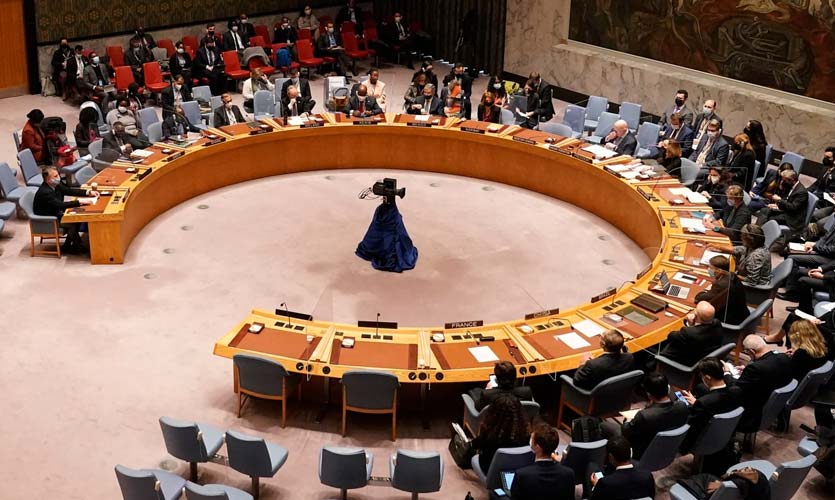In keeping with its non-alignment stance, India abstained from voting on a resolution condemning Russia’s invasion of Ukraine for the third time this week, potentially straining its relations with the US and other Western countries.
According to Global News, experts said that India’s decision to abstain from voting on a UNSC resolution demanding that Russia cease its invasion of Ukraine, does not mean that New Delhi is supporting Moscow, but rather reflects New Delhi’s dependence on its Cold War ally for energy, weapons, and assistance in conflicts with neighbours. Since the Cold War, Russia and India have enjoyed friendly relations, and the two countries have cooperated several times. Russia sent a ship into the Indian Ocean to distract a US warship from posing a threat to India, and some would even argue that it went out of its way to do so. India was assured by the USSR that it would take countermeasures if a confrontation with the United States or China developed. This assurance was enshrined in the Indo-Soviet friendship treaty signed in August 1971.
With respect to its longstanding rival Pakistan and the dispute over Kashmir, India needed Soviet support and veto power at the UNSC. India and Pakistan both claim the entire region as their own. Both nuclear-armed rivals accuse the other of supporting rebels in the Kashmir conflict, which has claimed thousands of lives. China and Pakistan are both seen as Russian allies, and India believes that Moscow has the leverage to change Beijing’s rigid stance on the border issue.
A number of groups protested in the Indian capital last week, calling for an end to the Russian aggression, and for Indian authorities to evacuate thousands of Indians stuck in Ukraine. C Raja Mohan, a senior fellow at the Asia Society Policy Institute, told Global News that the problem was India’s continued reliance on Russian weapons. “This is not just an abstract question. But the fact is that India is in the middle of a war with China. India is locked in an eyeball-to-eyeball confrontation with China over a disputed frontier,” he said.
In addition to the reliance on arms and artillery, India is also dependent on Russia in other ways. A goal of $30 billion in bilateral trade has been set by the two countries, by the end of 2025. India is also heavily dependent on Russian oil and gas. Russia exported approximately 0.2 percent of its natural gas to China in 2021, and China imported 1.8 million tonnes of thermal coal from Russia. A 20-year deal for 2.5 million tonnes of liquefied natural gas annually between India’s state-run Gas Authority of India Limited (GAIL) and Russia’s Gazprom was struck in 2018, as Indian media reported. Further, PM Modi and Putin met last year to discuss defence and trade relations, and extended their cooperation in military technology for the next decade.
Read more: How Will The Russia-Ukraine Conflict Impact Indian Economy?
In confronting China, New Delhi has been seeking the support of Washington and its allies, which is a common goal for the Indo-Pacific security alliance known as the Quad, which also includes Australia and Japan. India has also been diversifying its weapons purchases with American equipment. Over $3 billion worth of defence deals were signed between the US and India during the Donald Trump presidency. In 2019, the number of bilateral defence deals jumped from near zero in 2008 to $15 billion.
Nevertheless, India’s dependence on Russia can antagonise the US. A decision by India to acquire Russian S-400 missile systems, which it considers crucial to countering China, may also prove problematic for Indo-US relations. Known as an advanced surface-to-air defence system, the S-400 can provide India with a strategic deterrence against its rivals China and Pakistan. Moreover, the missile system deal with Moscow has put India at risk of US sanctions after Washington asked its partners to stay away from Russian military equipment.
The abstention would likely make Western countries unhappy, but they can’t completely alienate New Delhi. The real challenge for India is to navigate the international sanctions against Russia as the Ukraine crisis intensifies.










